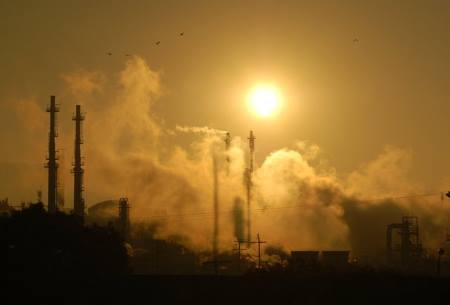Sustainable Living & Sustainable Lifestyle
Climate change can and does impact human health - have you felt an impact?
Climate change can and does impact human health - have you felt an impact?
Much of the debate surrounding climate change involves changes to the environment – rising sea levels, higher temperatures and melting ice caps.
But what about the impact on human beings?
Recent data suggests that concerns about climate change are increasingly focused on human health. Climate change, and all the factors that come with it, are beginning to negatively impact human health, according to some scientists and healthcare professionals.
In fact, according to the National Institute of Environmental Sciences, healthcare professionals around the world consider climate change “a critical public health problem.”
 One example is in China, where air quality has long been an issue. However, a 2015 study found the situation could be far worse than originally thought. Berkeley Earth, a nonprofit group based in the United States, released a report with information gathered from sensors placed around China. Their findings: about 80% of China’s population are exposed regularly to air with a pollution content that far exceeds the safe standards used by the Environmental Protection Agency in the U.S.
One example is in China, where air quality has long been an issue. However, a 2015 study found the situation could be far worse than originally thought. Berkeley Earth, a nonprofit group based in the United States, released a report with information gathered from sensors placed around China. Their findings: about 80% of China’s population are exposed regularly to air with a pollution content that far exceeds the safe standards used by the Environmental Protection Agency in the U.S.
The report also suggests that air pollution leads to 4,000 deaths every day in China. One researcher said the pollution levels in the city of Beijing were so high that it had the same health impact of every man, woman and child in the country smoking 1.5 cigarettes every hour.
According to the National Center for Biotechnology Information in the United States, healthcare professionals worldwide now have enough data to become concerned about the impact of climate change on human health.
Some of the specific areas of concern, according to the NCBI, include:
Other concerns, considered to be more indirect, include mental health consequences, population dislocation and civil conflict.
At academic institutions around the world, concerns about climate change have led to new degree programs designed to produce people who will be experts at assessing the impact of climate change on human health, as well as develop solutions.
One such degree is the Master’s in Public Health (MPH) in Environmental Health Sciences. The wide-ranging curriculum in this discipline includes studying biological mechanisms, epidemiology, analyzing data, environmental health and risk assessment of environmental pollution.
A big part of the program typically includes analyzing public policy on environmental issues. The degree is offered at many schools, including prominent institutions such as Columbia University in New York City, the University of South Dakota, the University of Texas, the University of California – Los Angeles and George Washington University in Washington, D.C.
Such programs – and the continued studies done by organizations worldwide – offer hope that health issues caused by climate change will be identified. And, given that information, public policy will emerge to deal with the issues.